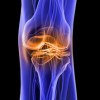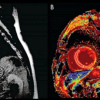
Ferritin is the main indicator of iron stores in the body. It plays a key role in the formation of hemoglobin, maintaining energy, and supporting the immune system.
Ferritin is the main indicator of iron stores in the body. It plays a key role in the formation of hemoglobin, maintaining energy, supporting the immune system, and cognitive functions. A deficiency in ferritin can cause fatigue, frequent colds, dizziness, hair loss, and even depression.
How does low ferritin affect the body?
If ferritin levels are below normal, the body starts experiencing an iron deficiency, leading to anemia and reduced overall vitality. You may notice:
-
Constant fatigue and weakness
-
Poor immunity (frequent colds, infections)
-
Hair loss and brittle nails
-
Dizziness and headaches
-
Decreased concentration and memory impairment
How to maintain a normal ferritin level?
✅ Nutrition: Include iron-rich foods in your diet — red meat, liver, seafood, buckwheat, legumes, spinach. For better absorption, combine them with vitamin C (citrus fruits, kiwi, bell peppers).
✅ Supplements: If iron is lacking, a doctor may recommend iron supplements.
✅ Healthy lifestyle: Monitor ferritin levels, avoid strict diets, and prevent overexertion.
Check your ferritin regularly — it will help maintain energy, immunity, and overall well-being!
Write a review
Required fields are marked with *
Categories
- News (42)
- Therapy (31)
- GP (23)
- Endocrinology (8)
- Cardiology (8)
- Ortopedics (4)
- Dermatology (3)
- urology (1)
- Check-up (1)
- Ultrasound (1)
Articles
Archive
- February 2026 (8)
- January 2026 (8)
- December 2025 (6)
- November 2025 (6)
- October 2025 (6)
- September 2025 (6)
- August 2025 (7)
- July 2025 (4)
- June 2025 (11)
- May 2025 (9)
Categories
- News (42)
- Therapy (31)
- GP (23)
- Endocrinology (8)
- Cardiology (8)
- Ortopedics (4)
- Dermatology (3)
- urology (1)
- Check-up (1)
- Ultrasound (1)









Comments (0)